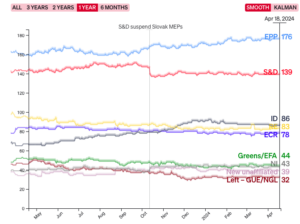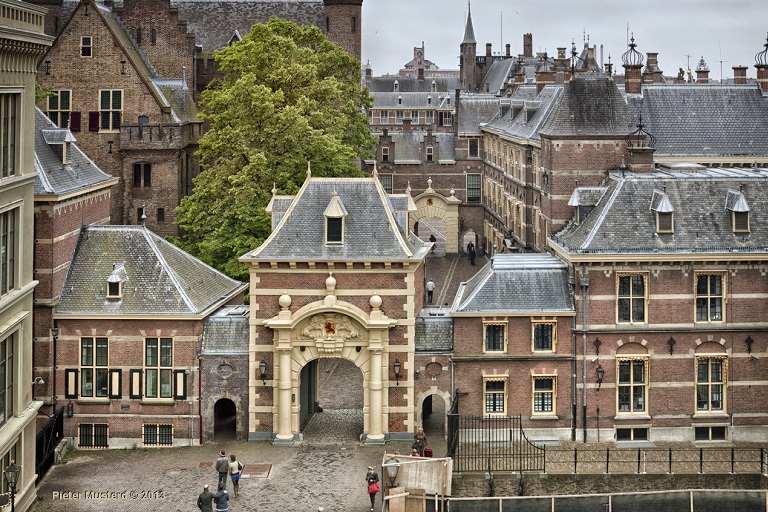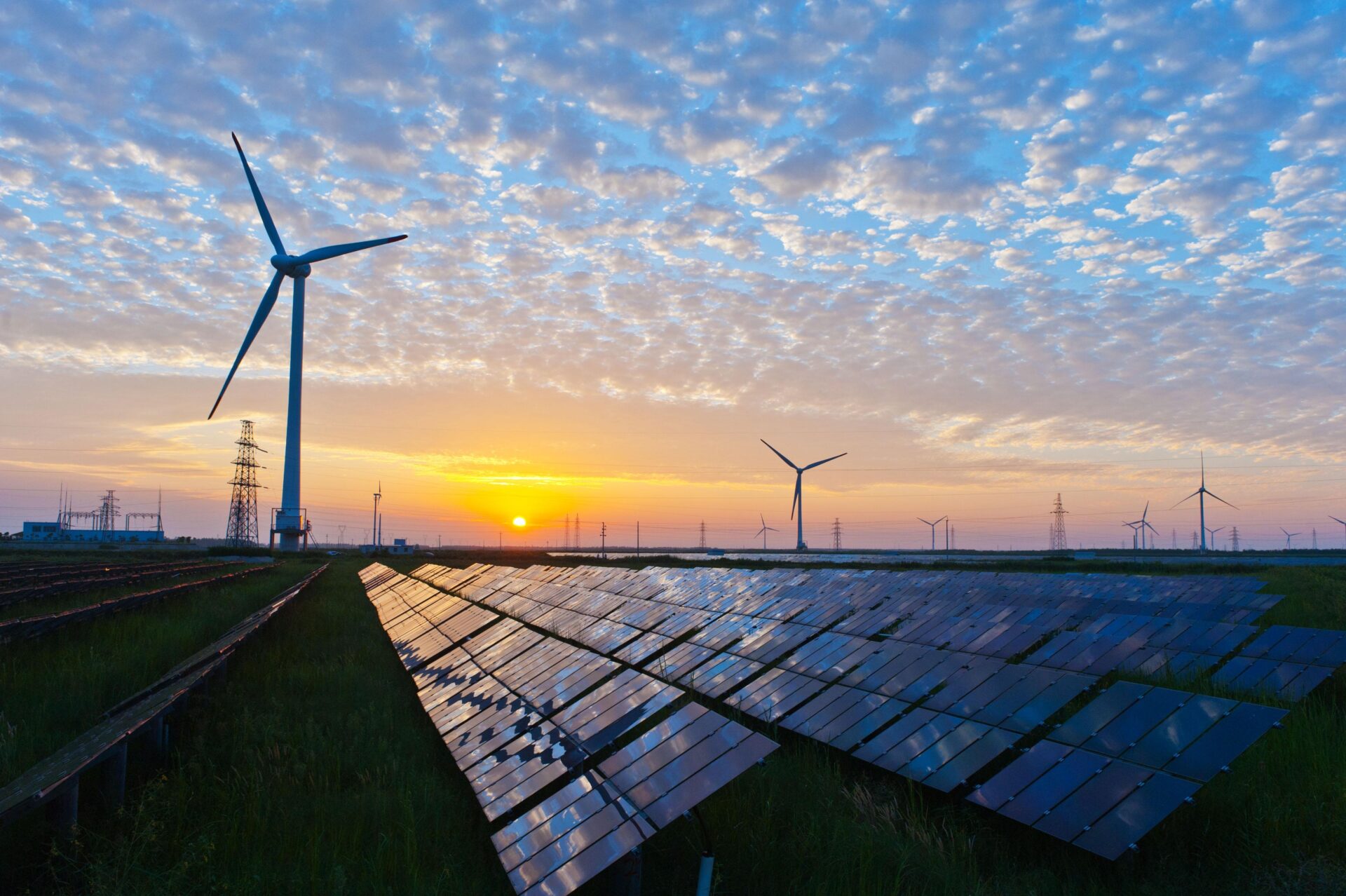Ook op 16 april 2024 trokken honderden Nederlandse boeren naar Brussel om te protesteren tegen de strenge mestregels van de Europese Commissie. Niet alleen Nederlandse boeren zijn ontevreden over het Europese landbouwbeleid. Ook in België, Frankrijk, Duitsland, Spanje, Polen en Roemenië gaan boeren de straat op om zich uit te spreken tegen dit beleid. Na gesprekken tussen de Nederlandse agrarische sector en de Eurocommissaris van Milieu was de boodschap aan het Nederlandse kabinet duidelijk: Ga aan de slag met maatregelen om het mestprobleem op te lossen, zodat boeren niet hoeven te smeken om een derogatie. Nu de Europese verkiezingen eraan komen, van 6 tot 9 juni, is de timing belangrijker dan ooit. Wat is de impact van de onvrede bij boeren op de aankomende Europese verkiezingen?
Dat boerenprotesten nu weer oplaaien heeft alles te maken met de huidige klimaatplannen van de EU. In 2015 sloegen de EU-landen de handen ineen om de opwarming van de aarde tegen te gaan en te beperken tot ruim onder 2 graden celsius. Om deze afspraak tegemoet te komen, streven de landen, met de Europese Green Deal uit 2020 als strategische schatkaart, om in 2050 de eerste klimaat neutrale economie en samenleving te zijn. In het hart van de Green Deal staat de Farm to Fork strategie. Deze heeft als doel het voedselsysteem van de EU tot een wereldwijde standaard voor duurzaamheid te maken. Hierbij is er een dringende noodzaak om het gebruik van pesticiden en kunstmest middelen te verminderen, meer biologische landbouw te bevorderen, het welzijn van dieren te verbeteren en het verlies aan biodiversiteit terug te draaien. Een belangrijk instrument om deze ambities te halen is de Common Agricultural Policy (CAP). De CAP streeft naar een duurzame toekomst voor Europese boeren, maar de regels om de landbouw klimaat- en milieuvriendelijker te maken, gaan voor veel boeren te ver en te snel.
Landbouwbeleid
De Green Deal, de beleidsinitiatieven van de huidige Commissie-Von der Leyen, staat onder druk. Boeren in verschillende EU-landen kwamen de afgelopen maanden in opstand tegen het stikstofbeleid, de pesticideregels, de gevolgen van de vrijhandelsakkoorden en de te lage prijzen van landbouwproducten. Als reactie op deze Europese wetgeving laaide de onvrede in heel Europa op. In verschillende hoofdsteden demonstreerden grote groepen en blokkeerden zij de wegen. Op 1 februari 2024 besloten ±1300 boeren te demonstreren bij het Europees Parlement in Brussel, waar een EU-top over de steun aan Oekraïne plaatsvond. De demonstratie verliep allesbehalve rustig. Er werd vuurwerk afgestoken, stro en mest gestrooid en straten werden geblokkeerd met trekkers.
“Laat boeren boeren”
De reacties van de agrarische gemeenschap laten zien hoeveel weerstand landbouwbeleid oproept in Europa. Het duurt niet lang meer voordat de Europese Verkiezingen gaan plaatsvinden. Volgens recente peilingen, uitgevoerd door de internationale journalistieke onderneming Politico, zal de steun voor de extreemrechtse ID– en rechtse EPP-fracties waarschijnlijk toenemen in een volgend parlement. De peilingen voorspellen een centrumrechts Europa. Daarentegen verliezen groene partijen steun. Wat betekent dit voor de toekomst van de boeren en de Green Deal?

source: Politico
In addition to the European People's Party (EPP), the Progressive Alliance of Socialists and Democrats (S&D) and Identity and Democracy (I&D) are also predicted to be among the largest parties. All three parties are embroiled in the recent frictions surrounding the Green Deal and resulting policies at this election time. S&D, which includes half Green Left-PvdA, acknowledges in its program that there are "complex, economic, social and political factors at play that must be taken into account" when it comes to the Green Deal. They are less outspoken about specific farm policy. Still, they express their support for an approach that supports workers and community affected by the energy transition. The I&D, to which the PVV is affiliated, has been more outspoken from the beginning of the Green Deal. Recently in a news release, shared by I&D, the farmers' protests were called "symbolic" and the deal "European mismanagement."
The EPP, in which the ChristenUnie and CDA are affiliated, is expected to emerge from the elections as the largest party. As a result, the EPP will play a leading role in election time on policy regarding the Green Deal. Remarkably, the EPP last month voted against the Nature Restoration Acte. "The EPP group continues to have serious concerns about the law. We do not want new and more forms of bureaucracy and reporting obligations for farmers. Let farmers be farmers," said Vice President Siegfried Mureșan. The EPP's recent campaigns have focused on better policies for farmers and the resilient making EU member states more resilient. For example, the Spitzenkandidat Von der Leyen, in response to farmer protests, even chose to withdraw a proposal aimed at halving the use of chemical pesticides by 2030. To accommodate the farming community, this decision tempered the EU's ambitious climate deal.
A radical farmers' group is now threatening to bring tractors back to Brussels a few days before the EU elections. The Dutch Farmers Defense Force (FDF), founded in 2019, is calling on farmers to march on June 4 to participate in a protest. Given the timing, the spokesperson indicated that they want to be close to the EU elections want to be "and make people aware of the possibility of voting for a different future." Following previous protests, relaxations could be rushed through the European mill, the EPP's decision to withdraw a proposal also showed.
Recent developments show that the time is ripe for change. In the run-up to the EU elections, EU climate goals will be the subject of political discussions and negotiations. It will become clear to what extent consensus can and will be reached inside and outside the EU.


